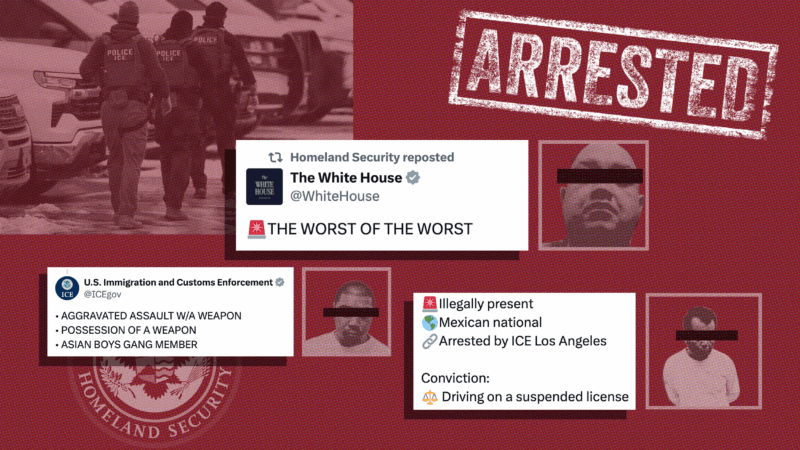UAB Infectious Disease Expert With COVID-19 Says “Stay Home”
Dr. Michael Saag knows a thing or two about infectious diseases. He’s director of the Center for AIDS Research at the University of Alabama at Birmingham. Right now, though, he’s a patient. Saag announced Tuesday that he’s tested positive for coronavirus. He says he made his diagnosis public in an effort to raise awareness.
Saag says so far his symptoms haven’t been too bad. Most have been mild-to-moderate symptoms such as fever or cough. But at age 64, Saag is at higher risk. Older adults and those with other health problems can become seriously ill.
He may have been infected while traveling to Boston and New York recently.
“But the point is I don’t know [that] for a fact,” Saag says. “This virus is so pervasive right now in the United States, including Alabama, that we can’t know where the majority of people picked up their infection.”
Saag says he was being vigilant by practicing social distancing, wiping down surfaces, washing his hands frequently and trying not to touch his face, but the coronavirus is so contagious he caught it anyway.
“Stay at home! Do not go out unless it’s essential,” Saag says.
That means only quick trips to get groceries or medicine.
“Cancel your card game. Cancel your mahjong. Cancel any of your usual appointments, if they’re not essential,” Saag says.
Saag wrote a column last week using projections of the virus’ spread to show how it could overwhelm the healthcare system. He says his views haven’t changed.
“If anything, I’m more concerned,” Saag says. “Partly because, despite my efforts at social distancing, I became infected.”
He believes the projections that show 70 to 120 million Americans will become infected. An estimated 20% of those, mostly older people, will need additional medical care. At the low end, that’s 14 million people who could require hospitalization.
“That’s going to swamp our medical system to a degree that it becomes destabilized,” Saag says. “So what can we do? Stay at home!”
A hint of that is happening already as testing sites are deluged with people wanting to be tested for COVID-19. Saag says he understands people are concerned, but right now testing should be reserved for those with symptoms.
Saag spent his career studying AIDS. While it’s a different disease, he does see lessons from the 1980s, when AIDS entered the public consciousness. Both coronavirus and AIDS seemed to appear out of nowhere driving fear and misinformation. He says those diagnosed with AIDS were stigmatized. That’s less so with coronavirus. Saag adds there was huge value with people “going public” with their AIDS diagnoses.
“Which is a huge reason why I immediately put my name out there as someone who was infected,” Saag says.
Science is helpful, he says, and some of what’s been learned from the AIDS epidemic has been applied to studying coronavirus. But the timeframe is completely different.
“We had two decades in AIDS. We have a few weeks in COVID-19,” Saag says. “We have no substitute for time and we’re going to need time to figure more of this out. In the meantime people need to hunker down and protect themselves.”
UAB holds WBHM’s broadcast license, but our news and business departments operate independently.
Parents, are you sure your kid’s car seat is installed right? Here’s how to know
In this visual guide, certified car seat experts walk through common installation mistakes and how to fix them. Learn what a secure car seat base and a tightly fastened tether look like and more.
Trump announces ‘major combat operations’ in Iran
Israel and the U.S. have launched strikes against Iran, with explosions reported in Tehran and air raid sirens sounding across Israel.
Trump says he is ‘not happy’ with the Iran nuclear talks but indicates he’ll give them more time
U.S. President Donald Trump said Friday he's "not happy" with the latest talks over Iran's nuclear program but indicated he would give negotiators more time to reach a deal to avert another war in the Middle East.
Bill Clinton says he ‘did nothing wrong’ with Epstein as he faced grilling over their relationship
Former President Bill Clinton told members of Congress on Friday that he "did nothing wrong" in his relationship with Jeffrey Epstein and saw no signs of Epstein's sexual abuse as he faced hours of grilling from lawmakers over his connections to the disgraced financier from more than two decades ago.
How the federal government is painting immigrants as criminals on social media
Experts say this kind of media campaign is unprecedented and paints a distorted picture of immigrants and crime
Pentagon puts Scouts ‘on notice’ over DEI and girl-centered policies
After threatening to sever ties with the organization formerly known as the Boy Scouts, Defense Secretary Hegseth announced a 6-month reprieve







